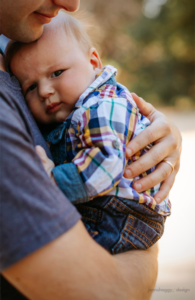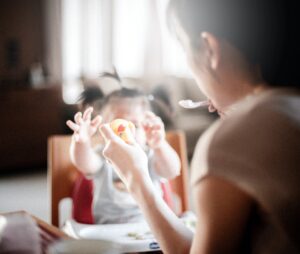By Iris Farrou
27 Jul, 2023
Childhood Health, Fatherhood, Lifestyle Tips, New Moms, Parenting, Postpartum, Toddler Health, Your baby's health
are strollers too hot in the summer, Baby, Baby Safety in Summer, how do I keep my newborn safe in the sun, How to keep my baby from overheating, is central AC safe for my baby, keep my baby cool, keep my infant cool, new dads, new mom advice, new moms, newborn body temperature regulation, Toddler, toddler overheating, what clothing is best for baby in hot weather, what time of day is best to go outside during summer with newborn
 If you’re spending your first summer with your baby, there are a few things to keep in mind about newborn babies and the summer heat so everyone can remain safe and have an enjoyable summer. Depending on which part of the US you live in or are visiting this summer, keep in mind that the heat may continue into the fall months–or it may be humid heat rather than scorching sun. Either way, the key information to remember is that babies cannot regulate their own body temperatures– older children and adults are able to do so, but babies need extra assistance and protection.
If you’re spending your first summer with your baby, there are a few things to keep in mind about newborn babies and the summer heat so everyone can remain safe and have an enjoyable summer. Depending on which part of the US you live in or are visiting this summer, keep in mind that the heat may continue into the fall months–or it may be humid heat rather than scorching sun. Either way, the key information to remember is that babies cannot regulate their own body temperatures– older children and adults are able to do so, but babies need extra assistance and protection.
- Overheating is very risky for newborn babies: if you are hot, then your baby is definitely hot as well. It is not unusual or “wrong” to keep babies in either a light onesie or only a diaper.
- Keep the temperature cool: if you have a central AC or a window AC unit and can afford to keep it running to keep the temperature lower than 77F degrees, that is ideal for a baby. Utilizing box fans on your windows for air circulation, as well as ceiling fans, is another method to ensure your baby stays cool.
- Help them sleep comfortably: especially when sleeping, your baby can be only in a diaper or swaddled using very thin, lightweight and breathable material. If you are not using central AC, make sure there is a fan in the room where your baby is sleeping–preferably not pointed directly at them, though.
- Proper hydration: you know that’s true for people of all ages, and the same goes for babies. If you notice infrequent urination or crying without tears, these are signs that dehydration has already occurred. Your instinct may be to give your newborn baby water, but that is a big NO in this case; their bodies cannot process water. Breastfeeding or milk formula in smaller and more frequent doses are a better solution. If your baby is already eating other foods, try to use more hydrating foods in their diet and provide more frequent–but still smaller–meals.
If the outside temperature is above 90 degrees, or 84ish with humidity, this is when your newborn, toddlers, or young children should NOT be outside, especially no more than 15 minutes if you absolutely have to be out. Try to not stay in the heat for too long, and seek shelter in air-conditioned spaces.
If you are using a stroller, keep in mind that it may not be the best idea to go for a walk in the heat—however, you should choose a stroller with a large canopy for extra protection for the warmer months. Avoid going outside in peak heat times of 10am-2pm, and dress your baby in breathable cotton clothing, preferably loose, that covers their skin as much as possible. Wide hats and sunglasses do look adorable on babies, and are also very much necessary.
https://www.michiganmedicine.org/health-lab/how-protect-your-baby-dangers-hot-weather
https://www.whattoexpect.com/first-year/health-and-safety/how-to-protect-children-from-extreme-heat/
More
By Iris Farrou
22 Jun, 2023
Childhood Health, Diet & Exercise, Fatherhood, New Moms, Parenting, Prevention, Toddler Health, Women's Health, Young adults & teens, Your baby's health
Anxiety, Baby, Boost Immunity, Child, food, Good Health, Immune System, Immunizations, Importance of, Pre-Teen, Probiotics, Sleep, Strengthen, Stress, Toddler, Vaccine, Vaccines, Vitamins, Wellbeing

The first concern every parent has when it comes to their child’s health is to keep them safe as much as possible. With extracurricular activities, summer camps, and attending school being a normal part of any child’s life, and going hand in hand with exposure to germs, it is often a challenge to help your children’s immune system stay strong. There are two routes that can assist you in this struggle: diet and lifestyle.
Before we talk about details on either path, there is one undeniable basis: make sure your children are up to date on important vaccines. For all people 6 months and older, the flu shot is recommended. COVID vaccines are now safe for younger ages as well–make sure all eligible family members are immunized, and keep checking with your pediatrician about being up to date on other necessary immunizations.
Diet and Supplements
In an ideal world, you have the time to prepare the best and healthiest meals for your family, and your children are never picky eaters. That would be a wonderful movie, but it is not the truth. Though pediatricians advise against using supplements and multivitamins to enrich your child’s diet–particularly because those are not well regulated in the US and their ingredients are not guaranteed–there are certain cases when supplements are needed.
Vitamin D is the first vitamin that helps children build a strong immune system; they usually would absorb it from the sun. However, if you do not live in a sunny area, there are certain kid-friendly foods that can help with that: fortified Vitamin D milk and yogurt, and orange juice. If you are lucky enough to be able to serve your child salmon, trout, tuna, and sardines then you are raising their chances of absorbing the necessary amount of Vitamin D. To use supplements, it is suggested that you first consult with your doctor and do a blood panel to see where your child’s Vitamin D levels are at, and what supplement is most appropriate for them.
Zinc is an important mineral that assists kids’ immune system. Oysters, red meat, and poultry are the best sources of zinc, followed by beans and nuts. If your child does not accept any of these foods, consult your pediatrician on how to proceed with a zinc supplement.
Probiotics and prebiotics play an important role in our immune system, specifically because they ensure good gut health. Probiotics ensure a good balance of helpful bacteria in our bodies, and in addition to yogurts you can try giving your child fermented foods–like pickles or miso–to help with that. Prebiotics also stimulate the growth of good bacteria, and they are mostly plant fibers: green bananas or plantains, yams, asparagus.
Lifestyle
Keep in mind that a healthy lifestyle is additional to a balanced diet when it comes to fortifying your child’s immune system. If you don’t have fruits and vegetables, as well as nuts and seeds in their diet, lifestyle changes can only do so much.
However, keep in mind that children need lots of sleep for their system to function properly and recharge. 12-16 hours for infants and around 10 hours for kids is what’s necessary to assist your kids in being healthy and help keep them on a regular schedule. Additionally, exercise and keeping active can do wonders for our immune system: encourage your child to be physically active at least one hour a day in some form of activity that they like; if they appreciate sports, so much the better! Physical activity doesn’t only contribute to overall good health, but it also helps manage stress. When we are stressed, especially in cases of heightened or chronic stress, our immune system is volatile and makes us more prone to infections. Be mindful of the stress levels your child may be facing, and encourage activities that make them happy and fulfilled.
https://www.health.harvard.edu/blog/boosting-your-childs-immune-system-202110122614
https://health.clevelandclinic.org/how-to-boost-your-kids-immunity/
More
 If you’re spending your first summer with your baby, there are a few things to keep in mind about newborn babies and the summer heat so everyone can remain safe and have an enjoyable summer. Depending on which part of the US you live in or are visiting this summer, keep in mind that the heat may continue into the fall months–or it may be humid heat rather than scorching sun. Either way, the key information to remember is that babies cannot regulate their own body temperatures– older children and adults are able to do so, but babies need extra assistance and protection.
If you’re spending your first summer with your baby, there are a few things to keep in mind about newborn babies and the summer heat so everyone can remain safe and have an enjoyable summer. Depending on which part of the US you live in or are visiting this summer, keep in mind that the heat may continue into the fall months–or it may be humid heat rather than scorching sun. Either way, the key information to remember is that babies cannot regulate their own body temperatures– older children and adults are able to do so, but babies need extra assistance and protection. 
